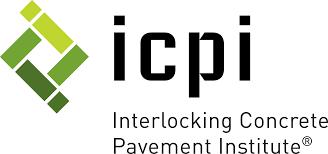PRESS RESOURCES
POPULAR TOPICS
Green Your Home and Your Hometown David Smith, ICPI Technical Director
Controlling the quantity and quality of on-site runoff is a major concern across America. Design professionals and engineers are constantly searching for sustainable approaches to site development. Permeable Interlocking Concrete Pavement (PICP) is a fast-growing sustainable design approach to stormwater management. PICP uses solid concrete pavers placed on an open-graded aggregate base. The joints or openings are filled with a small, permeable, open-graded aggregate. This small aggregate makes the system 100% permeable. The base of the system filters stormwater and reduces pollutants. This water can be collected and used for watering the lawn. Otherwise, the open-graded base stores and infiltrates the stormwater back into the soil. PICP can help drought-stricken areas via aquifer recharge and reduce combined storm sewer overflow from too much runoff. PICP can be used for walks, patios and driveways, as well as for parking lots and residential streets. Environmentally conscious homeowners are redoing their driveways and walkways with permeable interlocking concrete pavement, which not only looks good, but allows water to filter through the pavement to migrate back into the ground. In addition, homeowners can further help the environment by supporting projects that use PICP by their local municipality. These systems can and should be used in commercial or municipal parking lots and walkways. Permeable pavers look good
ABOVE - Permeable interlocking concrete pavements are the way to green your home and hometown.
Discover More You can learn more about PICP and find an experienced, professional installer by visiting the Interlocking Concrete Pavement Institute’s Web site at: www.permeablepavement.org
Homeowners particularly like the vast array of colors, shapes, sizes and textures available. These include rustic, stone-like pavers or others that look like clay brick. PICP is easy to maintain and snowplow. In addition, snow melts faster on PICP and this reduces ice hazards.
ICPI.ORG 12

